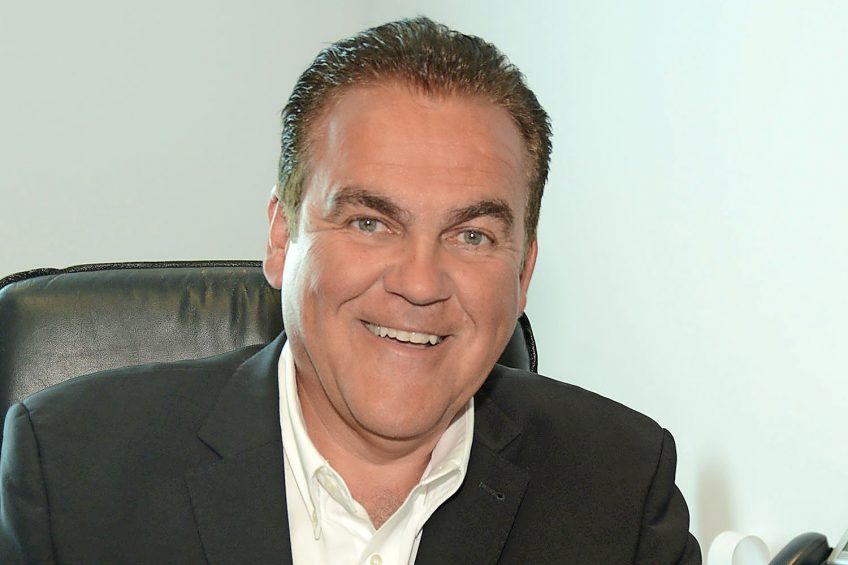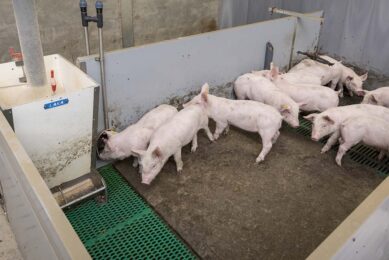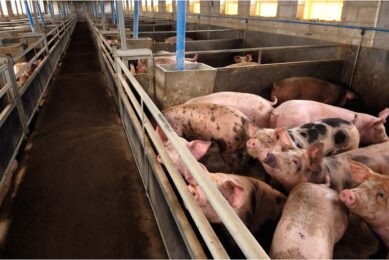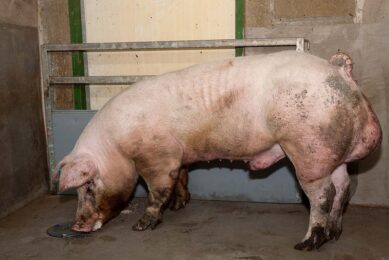Jefo’s CEO on the company’s start-up to multinational status

Jean Fontaine is the founder and president of Jefo, a global feed additive company headquartered in Canada. Under his leadership, this year the company is celebrating 35 years of global growth and innovation. The company is active in 60 countries all over the world. “‘Take your time, we are in a hurry’ is my motto.”
It was a visit to Europe that propelled Fontaine into launching his own feed additive business. After working for a premix company post-graduation from university, he took a trip on his own to investigate the additives scenes in Belgium, France, Holland and Germany. A visit to premix company, Sodial, in France was particularly important. “When I realised the price difference between feed additives in Europe and Canada, I quickly realised there was a huge opportunity. I was very excited, but I needed to find a way to get some capital to start importing some products. My brother Michel was of great help. He endorsed me for CAN$ 20,000. He had a veterinary clinic and laboratory.”
In particular, Mr Fontaine noticed a large cost difference between Europe and Canada on phosphates and bicarbonate, and he started to import these ingredients, competing with established suppliers. “I wanted to help the Canadian feed manufacturers and premixers to be more competitive,” he says. “Having worked for the premix company as a buyer and nutritionist, I was quite knowledgeable about selecting ingredients. Having a degree in nutrition always allowed me to choose the right additive with good judgement.”
After starting Jefo in 1982 and receiving very positive customer feedback, Mr Fontaine started to look for many more alternatives to products being offered by competing suppliers. “I opened our borders for sourcing ingredients. In 1987, we started to promote the concept of slow-release nutrients like amino acids, essential oils, and ‘bypass’ amino acids and vitamins for dairy.”

Profile
Jean Fontaine, 59, founded Jefo 35 years ago and still heads the company. The Canadian studied Animal Science at Laval University in Quebec City, during which he was a part-time pharmaceutical representative, selling products to veterinarians in Quebec. After finishing his degree in 1981, he worked in a micro and macro premix company as a buyer and nutritionist. He started Jefo in 1982.
Pig Progress: How has your company changed since you’ve been CEO or since you first started?
Jean Fontaine: “I don’t think the company could have changed more since I started it. Jefo has grown from a start-up company with just me distributing feed ingredients to a multinational company that is growing at a continued fast pace. We’re not just developing and selling our own products but we have become a research company with our own research farms, running trials and inventing new concepts and promoting them around the world to ensure the better health of animals and better profitability for farmers.
It’s always been my goal to achieve sustainability of life on the planet, helping farmers to use good nutrition to produce healthy protein for the human race. We’ve been promoting replacement of antibiotics for more than 15 years, with of course a lot of resistance at the start since antibiotics were the standard. However, that resistance has melted away. Today, the evolution of consumer demand is changing the whole game and now our solutions are getting a lot of attention.”
Which steps did the company take going significantly forward?
“A big step was when we hired specialists in their respective sectors. This has actually been the key to the success of Jefo. We have teams of specialists, but they are all devoted to the same goal, willing to work hard and to promote change in animal nutrition on a global scale.
Another big step was when Jefo decided to invest in our own research facilities for poultry and swine. This allowed us to discover and prove the efficacy of so many new products. To be able to use a new product, nutritionists need to see sound research and that’s what we work hard to provide.”
You’ve said that it was over 15 years ago that you decided Jefo should pursue feed additive alternatives for antibiotics. How was that realised?
“It was when the Europeans changed the law on growth promoters that we realised there would be a need to replace antibiotics. We met with our poultry veterinarian Dr Robert Gauthier and we realised it was a huge opportunity. We started to look at the best economical antibiotic replacements, and afterwards, we invented a solution for broilers with protected organic acids. Then we added essential oils to potentialise the acids. We started our trials and since the cycle is short in broilers, we confirmed our hypothesis quite quickly. Sales were slow initially since everyone could still use antibiotics freely. Today the rules have changed and consumers want antibiotic-free, so many of our solutions are in strong demand.”
What has happened ever since?
“Sometimes I feel Jefo has been on the same path as Apple computers. In 1983, they had the audacity to take a new position in their industry. Similarly, in 1987 Jefo launched protected organic acids in Canada. We then built a plant in Canada and since then, we have expanded the plant and we’ve done global promotion of the concept of protecting various nutrients in feed. It’s been a long fight against the conventional approach, which has been antibiotics used as growth promoters. But with consumer attitudes changing, it’s not a fight anymore but a matter of filling demand and offering the next level of products.”
What factors will influence the antibiotic alternative market in years to come?
“I think there will be more and more need to produce more natural feed additives, more natural feed ingredients, all of it, with less. The industry will also be looking for more sustainable ways to feed animals with less environmental impact. The consumer is requesting no antibiotics being fed to livestock and better and better animal welfare on the farm, and we will need to help to reduce the cost of feed to counter these new demands. Sometimes new production methods impose additional costs, so we need to do as much as we can to enable the production of a better product at the same cost. We also need better shelf life for meat. This will also become an important demand from consumers.”
Will we be able to feed the world in 2050?
“I feel there are so many new discoveries happening in the biotechnology world and that’s not going to stop. There are also better genetics all the time. And our mastery is increasing over the intestinal bacteria that can greatly modify the integrity of the nutrients we want the livestock to absorb. With all these new discoveries, I believe feeding the world will be possible in the decades to come.”
What is your long-term vision for the farming of pigs, poultry and dairy?
“More and more, I believe we will have to fine-tune animal nutrition. This means understanding, modulating and even controlling the microflora of the intestines in farm animals – this is our focus. We have already clearly proven the benefits of bypass of amino acids, vitamins and minerals in dairy with a much healthier cow as a result. Also, we have already discovered that slow release additives can prevent some bacterial growth in the intestine, and we have mastered the use of feed enzymes like protease, xylanase and beta-mannanase, to quote a few of them. We are now promoting the formulation of the mixture of enzymes that will simplify the life of workers in feed mills. There are less single ingredients to add to the mix.
Our results prove that ‘less is better’ in the nutrition of poultry, swine, dairy and fish, and provide a great hope that sustainable nutrition can be provided at a better cost and most importantly, with a better feed efficiency. This means decreased environmental impact as well.”
Where do you see your company headed in the next five years? The next 20?
“At the present time, Jefo is growing at a double-digit rate, and we are building on a period where we more than doubled our sales, from 2010 to 2015. We are expanding our production capacity by over 50% this year (2017).
In addition, we’ve built a new Jefo Campus to provide more education to new animal nutrition graduates, as well as ongoing education for all our colleagues in the feed industry and all our staff. We feel that if all our employees, from accounting to production, know the impact of our products in the world, it gives them a higher sense of purpose instead of a sense of just having a job. I believe having a mission makes all the difference: stone carver versus cathedral builder. All our employees will know their work every day contributes to natural solutions and healthier animals.
‘Pushing the progress every day’, is how people describe us. ‘Take your time, we are in a hurry’, is my motto. We will continue to push progress in our field every year. We also will continue to have good and friendly relationships with all our business partners, as this allows us to save time and make huge progress in a short period. I often say we are not reinventing the wheel, we just improving it and we will continue to improve it.”
More about Jefo
Jefo was founded in 1982, when Jean Fontaine saw an opportunity to benefit local producers by distributing feed additives. The company, based in St. Hyacinthe Quebec, grew and soon offered its own product lines. Today, Jefo has a presence in more than 60 countries, with over 250 employees. It produces feed additive and more, for ruminants, poultry, swine, aquaculture species and horses. In 1995, Jean Fontaine and the Jefo Group, created the Jefo Foundation. It aims to support the academic and social development of the next generation of agricultural professionals by contributing financially to the industry’s educational and social spheres, as well as integrating agriculture into the local and international professional network.
Join 18,000+ subscribers
Subscribe to our newsletter to stay updated about all the need-to-know content in the pigsector, three times a week. Beheer
Beheer










 WP Admin
WP Admin  Bewerk bericht
Bewerk bericht